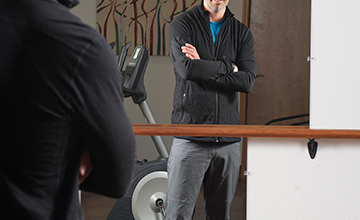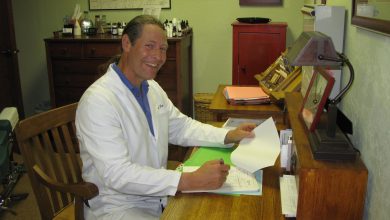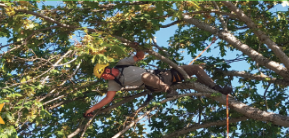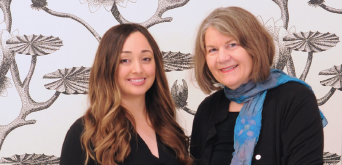Kani Comstock: Honoring Missed Motherhood
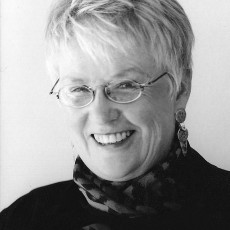 For more than 35 years, Kani Comstock has been coaching individuals and couples, creating and leading workshops, designing programs and directing companies that encourage individual creativity, personal power and authenticity. Currently her work is focused on healing the loss and unresolved, often repressed, grief from missed motherhood. This includes infertility, pregnancy loss from miscarriage or abortion, giving a child up for adoption, choosing to be child-free, or never having the right circumstance. Kani is the author of two books: Honoring Missed Motherhood, Loss, Choice and Creativity and Journey into Love, Ten Steps to Wholeness. Both of these books describe challenges involved in healing the past, and outline steps to be taken to claim personal authenticity and inner wisdom to find love for self and others. I spoke with Kani about her work.
For more than 35 years, Kani Comstock has been coaching individuals and couples, creating and leading workshops, designing programs and directing companies that encourage individual creativity, personal power and authenticity. Currently her work is focused on healing the loss and unresolved, often repressed, grief from missed motherhood. This includes infertility, pregnancy loss from miscarriage or abortion, giving a child up for adoption, choosing to be child-free, or never having the right circumstance. Kani is the author of two books: Honoring Missed Motherhood, Loss, Choice and Creativity and Journey into Love, Ten Steps to Wholeness. Both of these books describe challenges involved in healing the past, and outline steps to be taken to claim personal authenticity and inner wisdom to find love for self and others. I spoke with Kani about her work.
Kani, thank you for speaking with me today. How prevalent is the experience of missed motherhood and why are we not hearing more about it?
The experience of missed motherhood is much more prevalent than even I suspected–almost as frequent as becoming a mother. It appears that as many as 75% of women have had or will have at least one experience of missed motherhood during their adulthood. Our culture still assumes that a woman will have a child, and 80% of women do become mothers, even though they may have one or more experiences of missed motherhood. The inability to conceive or a pregnancy loss is experienced as failure. Running out of time to conceive frequently causes shame and regret. The conscious choice not to have a child, to be childfree, is often seen by others as a failure, an act of selfishness, that the woman doesn’t know what she is missing.
We are not very skilled in our culture in dealing with inadequacy or failure. We are supposed to be winners. As a consequence, talking about loss or failure is minimized or avoided, whether it’s about money, a job, a relationship, a pregnancy or infertility. We try to get over it or fix it as quickly as possible. And what often happens is that we repress our feelings in our effort to reach for success. So the loss becomes a blimp on the visible screen of life and the unresolved grief goes underground, often leading to recurrent episodes of sadness or depression over the course of our life.
Kani will you please give us a little background on yourself and the work you have done?
I was told at 26 years old that I could never have children of my own. It was devastating news. The impact of missed motherhood has reverberated throughout my life in various and unpredictable ways and from surprisingly different perspectives. It affected my sense of self and my worth, choice of career and friendships, the quality and duration of my relationships, my place in family and society, and my lifestyle. For many years I felt alone, excluded, not fully feminine, although I used my creativity in other ways that enabled me to create a life that has been more satisfying and fulfilling than I could have imagined. Over the many years of working with women in personal growth workshops, I began to grasp how widespread the experience of missed motherhood and the repression of their unresolved loss and grief actually is. My newest book, Honoring Missed Motherhood: Loss, Choice and Creativity, written in collaboration with my sister Barbara Comstock who is also not a mother for different reasons, offers steps to grieve the loss, experience wholeness and move into joy.
Let’s go more in-depth on the topic of loss. Our society doesn’t have great models for dealing with loss or talking about it. Please share your experience.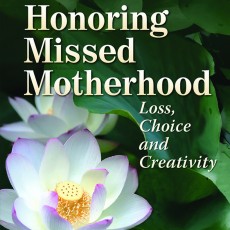
Missed motherhood can be a loss that is unseen by others unless we bring it to their attention. It is difficult for a woman to know how to share about her miscarriage or abortion if people didn’t even know she was pregnant. How many times can a women struggling to become pregnant, share her feelings of loss as, each month, it doesn’t happen? When hearing about a loss, people try to provide support, by using phrases that actually encourage hiding and feelings of isolation: I know how you feel. Time heals. You’ll get over it. Get busy and try again. You already have a child/children. It wasn’t meant to be. You can always adopt. You chose to wait too long.
Then there are the things we tell ourselves–quietly, secretly, within our own minds–and hold to be the truth. I can remember some of mine: My life is ruined. Nothing else matters now. I can never get over this. There is something wrong with me. I am flawed, less than a woman, not really feminine. I don’t fit in. I don’t belong. Another common one I’ve heard from women is: I’m being punished by God.
Some cultures view loss differently, less tragically, more incorporated into the flow of life. They have rituals to honor losses and transitions; rituals that bring knowledge of them into the community experience, that support and join in the grieving, that encourage the expression of a range of feelings and open the space to release sorrow and move forward in life. One example of this is the Mizuko-kuyo ceremony, held at temples in Japan. During these ceremonies, women can honor the loss of a pregnancy from miscarriage, abortion or stillbirth with a memorial Jizo statue and attendance at a monthly memorial service. In the Hoffman Process that Barbara and I lead we offer a simple ritual that allows women, and men as well, to begin to discover and express their loss and grief about missed motherhood. When offered the opportunity, often tears come to their eyes, and coming back from the experience they frequently comment they had no idea there was still grief to be expressed after so many years.
What has the response been as you speak about missed motherhood?
Whenever the topic comes up, I find almost everyone I speak with, women and men, has experienced missed motherhood themselves or had a partner, friend or family member who had. And there is an eagerness to share their experience. For almost all of the women whose stories are included in the book, they had never shared their missed motherhood experience beyond the mere facts, if even that, before I interviewed them. I asked them what happened, what they felt and thought then and now, how they were supported and how they would have liked to have been supported. And I listened.
I was often surprised by the complexity, the various twists and turns, how much time and energy was involved. My interest in hearing each story created a space for these women to explore within themselves and express in words what they had held within, with no place to go. All the thoughts and feelings they had suppressed, hidden even from themselves at times, unshared for decades, were released into the air. It was often a transformative experience. It was always an honor for me to be their witness.
Though your work has been specific to women, how do you also find this same topic effecting men?
That is a great question. Men suffer as well. Often they are so focused on supporting their partner’s grief that they don’t realize how they are suffering from the loss themselves. A comment on my book speaks to this: “All of us endure loss an endless number of times throughout life. Missed motherhood is one that leaves particularly deep scars. This book connected me with my “missed fatherhood” from five years of failed infertility treatments and two failed adoptions, which took their toll, although I have great children.” At times the inability to communicate, understand and support each other’s grief results in the end of the relationship, which then becomes another loss.
Can you say more about the impact of trauma? We have a perception in our society that time heals, is this true?
That is clearly a misperception. Time doesn’t heal. We can see many examples of this. There are times that repression and suppression appear to be the only way to survive the trauma, but they don’t heal it. We are seeing this with PTSD victims of war. Another example is childhood sexual abuse, especially by a parent. I see this frequently in the work I do. The memories come back later they don’t just go away even though they may be hidden within for years.
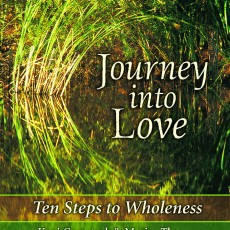 Please share a particular moment or two that stands out for you.
Please share a particular moment or two that stands out for you.
As part of my work on missed motherhood, years ago I created a Mother’s Day Service in collaboration with Rev. Sherry Lady at Unity in Ashland that honors the creativity of all women, not just mothers. In celebration of the book’s publication, we once again led the service, this time in Eugene, and at the end of the service I said a few words about missed motherhood. One woman came and touched my arm, saying, “I’m one of those women,” and proceeded to tell me her story of never conceiving. Another shared that she had gotten pregnant in her teens, was forced to have an abortion and then was never able to conceive again. During a taxi ride, I shared that I was writing a book and the woman driver told me of her teen pregnancy and abortion and how the sadness kept resurfacing over the decades since it had happened.
You encourage women to speak about their experience. Why is talking about the loss so important?
Expression is a proven path to healing, freedom and wholeness, especially of the feelings and thoughts that we have hidden, repressed, minimized or denied. Research has shown that it is powerful to explore, discover and appropriately express feelings using language and that inhibiting expression can place people at risk for major diseases. Confronting and expressing our deepest feeling and thoughts can boost our immune system and have short-term and long-term health benefits. Over the last 25 years, we have regularly witnessed this happening with our students in the Hoffman Process, which includes focused verbal, physical and written experiences of expressing feelings and thoughts.
What needs to happen? What do you say?
A simple supportive phrase is, “I can’t imagine what you are feeling.” And then listen with curiosity and without the mistaken illusion that you can or should fix the loss. By being willing to listen without giving advice, you can support the woman in exploring and sharing her feelings. As I’ve said, loss shared, acknowledged, honored and grieved moves us toward healing. The loss doesn’t disappear, but the grief can, and the experience of the loss can shift.
From what you are saying, it appears that loss can happen at various levels for women.
Whether chosen or not, all experiences of missed motherhood encompass some loss. Actually all choices involve loss of what is not chosen. The depth and degree of the loss, the individual woman’s awareness and experience of it, and her ability to process it, varies and is unique. Some feel the loss immediately and the feelings may linger. For others, it surfaces later in life. Others never allow themselves to recognize it at all. Recognizing that we lost something by our choice, especially if we choose to be childfree, can be perceived as regret even when we are happy with our choice and would make the same choice again.
Loss is a common topic. Why are you choosing to focus more on the healing process?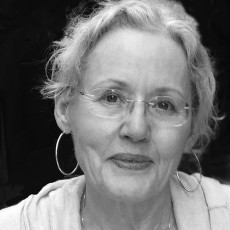
There are many books and articles that describe loss, but very few that teach us how to heal, or even that we can heal. Barbara and I support a vision where missed motherhood is recognized, validated and honored as a part of community life. Except for funerals, people rarely recognize suffering, pain, loss or absence. Loss is considered private. Yet recent research suggests that an event becomes a trauma in the brain depending on how the affected person is received and held in the community. Acknowledgement of the prevalence and impact of missed motherhood integrated into the community enables all women to experience inclusion and wholeness.
What are you doing and what services you are providing?
We offer a women’s sharing circles, individual missed motherhood coaching and a weekend workshop that recognize and support the healing of missed motherhood. The next gathering in Ashland of the Sharing Circle is March 11th and the weekend workshop, Missed Motherhood, Loss & Choice, Honoring Our Wholeness in Ashland is April 26-27. Comments from previous students :
Through their wise and gifted teaching I experienced profound change. They’ve been the lighthouse and the solid rock foundation I needed on my journey through stormy waters. The best!
~ Ginger, Cape Cod MAAfter losing several unborn children, I never thought I’d find a way through. Their exceptional facilitation skills and genuine compassion create a unique healing environment where I found peace, and was able to move forward with strength and grace.
~ Linda, Santa Barbara CASee our website: missedmotherhood.com for more information.
In conclusion do you have any final thoughts you would like to share with our readers.
I encourage curiosity. If you have experienced missed motherhood, be curious about feelings and beliefs you might have pushed aside that are still lurking within. When you hear of a friend or family member who experienced missed motherhood, be open to listening to what they might have to share without offering any advice. Listening is one of the greatest gifts we can give to others.
Learn More:
Kani Comstock & Barbara Comstock
Missed Motherhood
www.missedmotherhood.com
www.Facebook.com/MissedMotherhood
541-482-1518
kanicom@gmail.com

